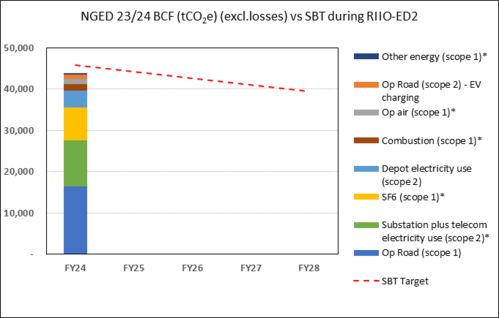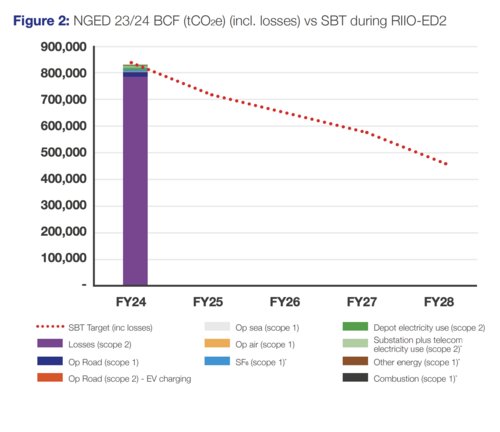Introduction
We understand and acknowledge that our business carbon footprint has a major impact on our environment and the sustainability of future generations. To address this we have made a commitment to measure and reduce our footprint, including SF6 gas and network losses.
Business Carbon Footprint
Our Business Carbon Footprint (BCF) details the impact that our operational activities have on the environment in terms of associated carbon dioxide (CO2) emissions. We measure and report our BCF using equivalent tonnes of carbon dioxide (tCO2e). The data compiled and the figures which we report follow a recognised methodology as described within international business carbon footprint standards, the Greenhouse Gas (GHG) reporting protocol and ISO14064-1. All of our published BCF data has been verified and data assured for accuracy and compliance with the standards detailed above.
The scope of our BCF reporting has changed for RIIO-ED2 and no longer includes Scope 3 carbon emissions associated with our Business Travel or contractor activities. Figure 1 and Figure 2 present our Scope 1 and 2 Performance against our new SBT targets.



